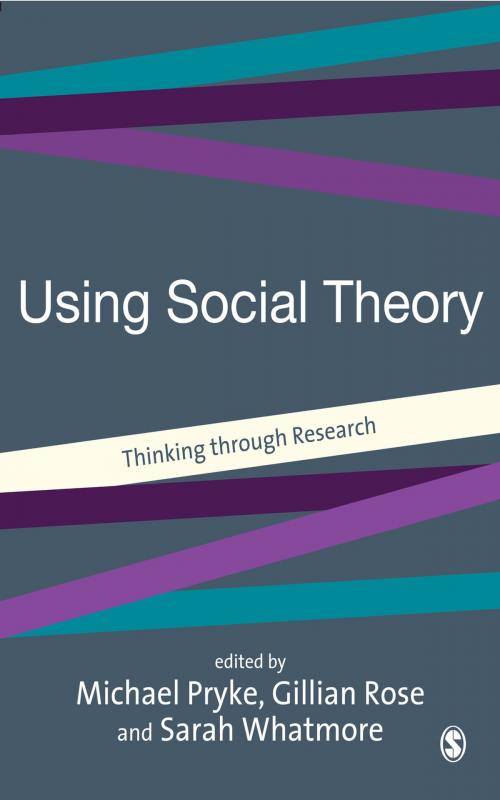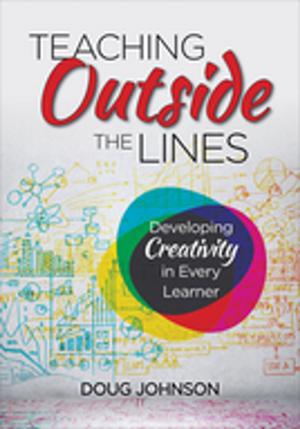| Author: | ISBN: | 9781446234754 | |
| Publisher: | SAGE Publications | Publication: | August 13, 2003 |
| Imprint: | SAGE Publications Ltd | Language: | English |
| Author: | |
| ISBN: | 9781446234754 |
| Publisher: | SAGE Publications |
| Publication: | August 13, 2003 |
| Imprint: | SAGE Publications Ltd |
| Language: | English |
`If there is a single question that presses upon the intellect of the current generation of social scientists, it is surely: "what do the great insights of social theory imply for the way we conduct research and write about the social world?". Until now there has been no single text to turn to that explores the epistemological complexities of field work, the problems of writing and language, and of the logics of inquiry that link theory, method and evidence. Using Social Theory is a magisterial effort to open up the black-box of research methods, and to provide students, in a way that no other comparable text has done, with a road map for the practice of the contemporary human sciences' -
Michael Watts, Chancellor's Professor of Geography and Director Institute of International Studies, University of California, Berkeley
`From "theory talk to making it walk", Using Social Theory is one of the most useful and interesting books on the market. The authors demonstrate how to use philosophy and social theory as an indispensable toolkit for passionate and rigorous research. Essential reading for students and teachers in the social sciences and humanities' - Professor Elspeth Probyn, Department of Gender Studies, University of Sydney
Have you ever stopped to wonder about the influences that underpin research? If you are thinking about doing a piece of research, what difference might it make to the question you ask, to your approach to empirical work, analysis and writing of research, if you are influenced by one theoretical approach rather than another?
The chapters in this innovative guide share a common belief that thinking alongside ideas, philosophical persuasions, is an integral part of the research process; it is not an optional extra. It sets out ways to encourage the researcher to think through three key moments of the research process: the production of a research question; fieldwork; and analysis and writing.
As the authors demonstrate, research is not simply `done': it has to be thought about and thought through. The book's accessible style makes it suitable for anyone wishing to engage ideas in research in the social sciences and humanities.
`If there is a single question that presses upon the intellect of the current generation of social scientists, it is surely: "what do the great insights of social theory imply for the way we conduct research and write about the social world?". Until now there has been no single text to turn to that explores the epistemological complexities of field work, the problems of writing and language, and of the logics of inquiry that link theory, method and evidence. Using Social Theory is a magisterial effort to open up the black-box of research methods, and to provide students, in a way that no other comparable text has done, with a road map for the practice of the contemporary human sciences' -
Michael Watts, Chancellor's Professor of Geography and Director Institute of International Studies, University of California, Berkeley
`From "theory talk to making it walk", Using Social Theory is one of the most useful and interesting books on the market. The authors demonstrate how to use philosophy and social theory as an indispensable toolkit for passionate and rigorous research. Essential reading for students and teachers in the social sciences and humanities' - Professor Elspeth Probyn, Department of Gender Studies, University of Sydney
Have you ever stopped to wonder about the influences that underpin research? If you are thinking about doing a piece of research, what difference might it make to the question you ask, to your approach to empirical work, analysis and writing of research, if you are influenced by one theoretical approach rather than another?
The chapters in this innovative guide share a common belief that thinking alongside ideas, philosophical persuasions, is an integral part of the research process; it is not an optional extra. It sets out ways to encourage the researcher to think through three key moments of the research process: the production of a research question; fieldwork; and analysis and writing.
As the authors demonstrate, research is not simply `done': it has to be thought about and thought through. The book's accessible style makes it suitable for anyone wishing to engage ideas in research in the social sciences and humanities.















